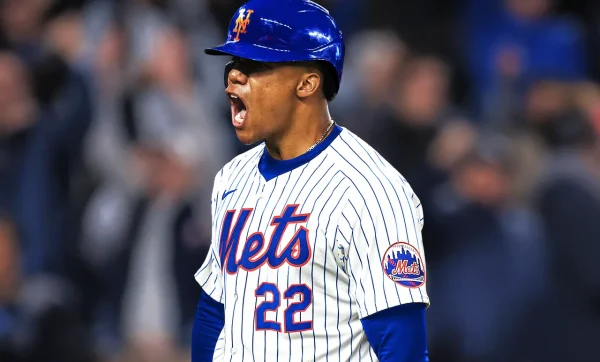
The MLB offseason has showcased staggering financial fireworks, with teams spending a jaw-dropping $2.6 billion in just 69 days of free agency. This wave of spending underscores a widening disparity across baseball as some franchises build superteams while others remain dormant. With five weeks left until spring training, franchises like the New York Mets, Los Angeles Dodgers, and New York Yankees dominate headlines, but nearly a third of MLB teams have yet to even dip into their wallets.
The Billion-Dollar Players’ Market
In this free agency period, powerhouse teams have made aggressive moves, accounting for over half the total spending. Leading the charge are the Mets, Yankees, and Dodgers, who have collectively invested $1.45 billion in player salaries. Juan Soto’s historic $600 million contract with the Mets epitomizes the trend of escalating salaries for baseball’s elite. To put that into perspective, Soto’s annual salary exceeds the combined spending of several entire divisions in free agency.
These figures set MLB apart even among professional sports leagues. While NBA players command significant annual salaries due to smaller roster sizes, and NFL contracts are often front-loaded with guarantees, MLB’s fully guaranteed megadeals are unmatched. Contracts like Soto’s highlight how baseball players benefit from lengthy contracts that provide stability unmatched in the volatile world of professional sports.

Spending Powerhouses vs. the Silent Few
While big-market teams throw money at transformative talent, six teams have yet to spend a single penny in free agency: the Minnesota Twins, Miami Marlins, Milwaukee Brewers, St. Louis Cardinals, San Diego Padres, and Seattle Mariners. Even within the same division, the disparity is striking.
In the NL Central, for instance, the Chicago Cubs have spent $43.3 million—less than Soto’s annual salary. Meanwhile, the Cincinnati Reds have allocated $24.4 million, and the Pittsburgh Pirates are only slightly above that figure. However, teams like the Brewers and Cardinals have not only refrained from spending but have also lost some of their most expensive players.
This raises critical questions: are these teams truly struggling financially, or are they strategically biding their time for better opportunities?
High-Stakes Bidding Wars
The Soto sweepstakes symbolized the spending frenzy among top-tier teams, with at least eight franchises vying for the generational talent. While the Mets succeeded, only the Yankees and Dodgers—both Soto bidders—have followed up by splashing cash elsewhere.
“This level of spending tells you one of two things,” an anonymous GM remarked. “Either a lot of teams don’t have the money, or they’re waiting to figure out how best to spend it. We’re about to find out.”
The Future of MLB Spending
As spring training approaches, the MLB offseason is a tale of two leagues: one of extravagance and another of caution. While some teams see big investments as the path to contention, others emphasize development, budgetary restraint, or even the potential of future mega-deals.
One thing is certain: this offseason’s financial disparity will not go unnoticed when the season begins. The gap between the spenders and savers continues to grow, setting the stage for both exhilarating competition and ongoing debates about the league’s financial ecosystem.